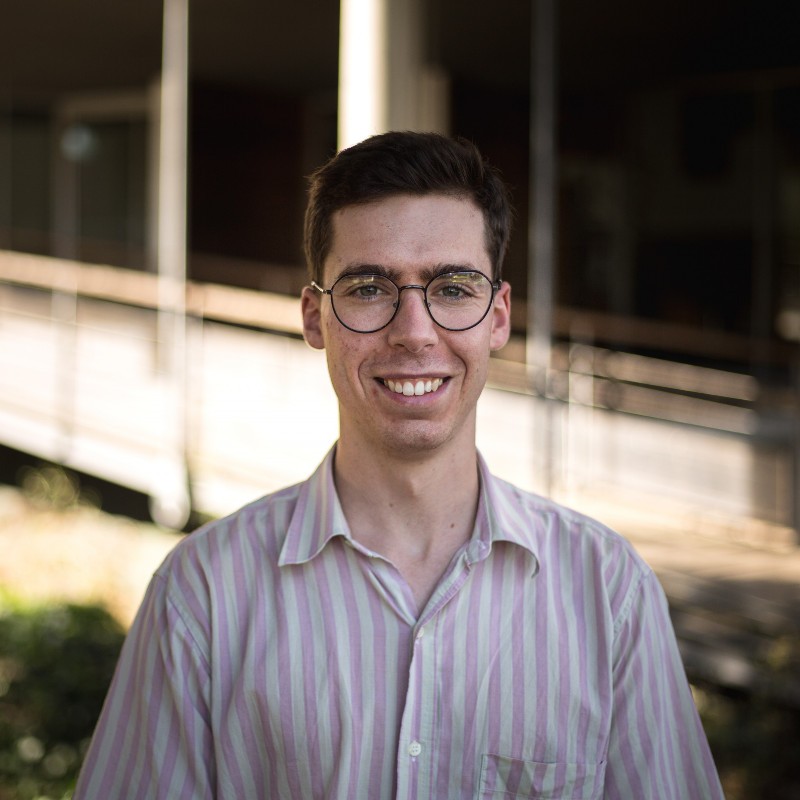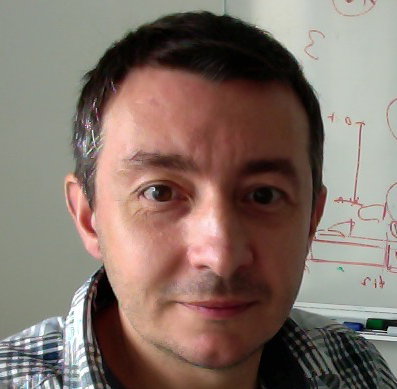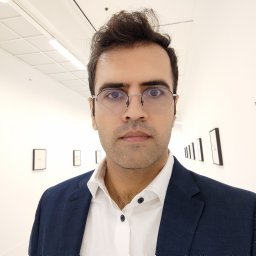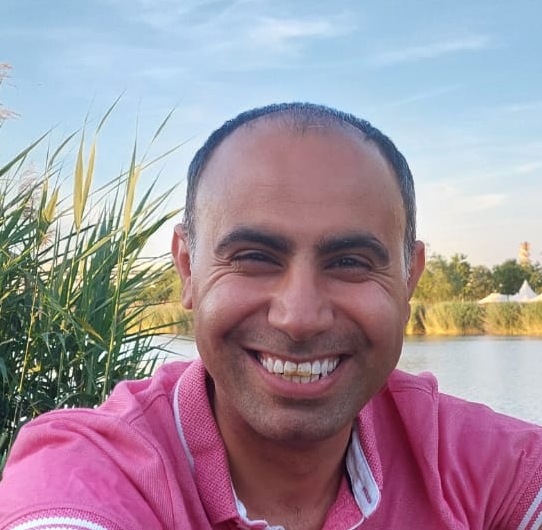The LST team develops its research activities in the field of natural language processing using both text and speech inputs. The team is working with data-driven approaches, but is also specialized in deep learning methods for natural language processing.
Speech recognition
Speech recognition is the process of transforming a signal into a sequence of words. From this sequence, a great deal of information can be extracted such as opinion detection, application concepts, named entities, speech analytics...
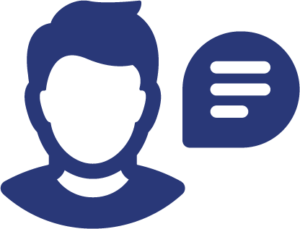

Speaker caracterization
Speaker caracterization covers several tasks around speaker voice. We are interested in speaker segmentation and clustering (splitting of audio recordings into speakers), speaker identification and verification (finding a speaker's identity), language identification and the detection of emotions.
Machine translation
Machine translation is the process of translating (switch from one language to another) a text or a sound recording with software, without human intervention.


Interpretable natural language modeling
Neural language models made tremendous progress in recent years. We are working on these systems to adapt their architectures in the case of specialised corpora, to deal with speech recognition, and to design new interpretable and frugal approaches.
Natural language processing for knowledge extraction
We are working on automatic systems to extract knowledge from audio or textual data. In particular, we are specialized in machine learning and deep learning end-to-end systems to extract semantic features of data and to operate opinion mining.
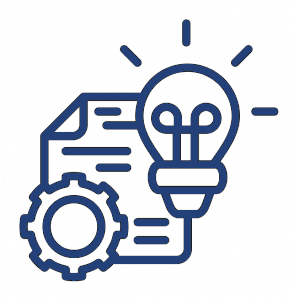
LST - Members
LST Projects
Current projects

TV2M-E
Project: Multilingual Multimodal Voice Translation - Expressive
Date: 06/2024 - 06/2026
Funding: Région Pays de la Loire
Call: PULSAR
Author(s): Aghilas Sini
URL: https://lium.univ-lemans.fr/en/tv2m-e/
A bilingual or polyglot speaker has the ability to communicate coherently in several languages, adapting to different contexts. Transferring this skill to machines could contribute to the preservation of cultural heritage by maintaining less privileged languages, facilitating interaction between people of different cultures and languages, and reinforcing safety measures. ► Read more
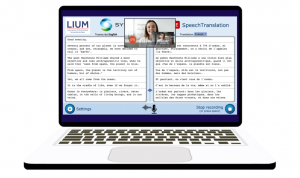
COMMUTE
Project: Online Multilingual Communication Support Platform
Date: 12/2022 - 11/2025
Funding: Autres
Call: DUALE-RAPID
Partners: ChapsVision (France)Author(s): Antoine Laurent, Mohammad Mohammadamini, Marie Tahon, Aghilas Sini, Hugo Riguidel, Emmanuelle Billard
URL: https://lium.univ-lemans.fr/en/projet-commute/
Our project aims at integrating the production of speech recognition and translation into an online communication tool, which will create a true barrier-free communication platform. The project will focus on the production of French and English translations from an Arabic and English speech source.
► Read more
DIGING
Project: Dynamic and Interpretable Graph-based word embeddINGs
Date: 01/2022 - 12/2026
Funding: ANR
Call: ANR JCJC
Author(s): Nicolas Dugué, Nathalie Camelin, Sylvain Meignier, Jane Wottawa, Simon Guillot, Anna Béranger
URL: https://lium.univ-lemans.fr/en/diging/
Recent approaches to embedding learning have focused on results, often at the expense of interpretability and algorithmic complexity. Yet, interpretability is a necessary pre-requisite for the deployment of such technologies when they are used in sensitive domains such as law or medicine. Moreover, ecological imperatives create an urgent need to think about efficient and computationally efficient systems. With DIGING, we propose a new powerful and computationally efficient approach for the construction of interpretable lexical plots based on the theory of complex networks. With this original approach, the goal is to build vectors integrating polysemy natively by plunging words into a space with interpretable dimensions.
► Read more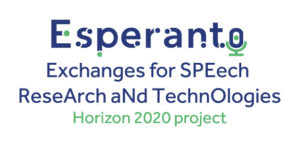
ESPERANTO
Project: Exchanges for SPEech ReseArch aNd TechnOlogies
Date: 01/2021 - 12/2025
Funding: EU H2020
Call: H2020-MSCA-RISE-2020
Partners: academic (MS): Université du Mans, Universidad de Zaragoza, The University of Sheffield, Brno University of Technology, Laboratoire national de métrologie et d’essais (LNE), Université Grenoble Alpes, Avignon Université, University of Yaounde, Consejo Nacional de Investigaciones cientificas y tecnicas, Universidad de Chile, Centro de Aplicaciones de Tecnologías Avanzada, Universiti Malaysia Sarawak, Universiti Sains Malaysia, Johns Hopkins University, Montreal Institute for Learning Algorithms
Non academic: Allo-média, Elyadata, Omilia, Phonexia, National Institute of Standard and Technologies (NIST)Author(s): Anthony Larcher, Loïc Barrault, Fethi Bougares, Antoine Laurent, Meysam Shamsi, Marie Tahon, Jane Wottawa, Grégor Dupuy, Emmanuelle Billard, Martin Lebourdais, Théo Mariotte, Thibault Gaudier, Thomas Thebaud, Valentin Pelloin, Mohammad Mohammadamini, Aghilas Sini
URL: http://esperanto.univ-lemans.fr/en/index.html
ESPERANTO is a collaborative research program based on a partnership between 15 academic and 4 non-academic partners, having complementary expertise and resources. The Esperanto project involves academic institutions leading the field of speech processing on 4 continents for decades and covering a large range of speech processing applications. ESPERANTO will contribute to the development of the next generation of AI; AI interacting with their users for better learning but also explainable systems: systems whose decisions are understandable by humans. In order to make these technologies accessible to the largest number of people, ESPERANTO will address applications with limited resources in the field of rare languages, robotics or education.
► Read morePast projects

PereFRALL
Project: Thinking Franco-German relations
Date: 09/2023 - 08/2024
Funding: Autres
Call: Amorçage interdisciplinaire MSH Ange-Guépin
Partners: Centre de Recherche sur les identités, les Nations et l’Interculturalité (CRINI) (France)Author(s): Jane Wottawa
URL: https://lium.univ-lemans.fr/en/perefrall/
When we think of Franco-German relations, it is clear that they are not described in the same terms on either side of the Rhine. While the figure of the "couple" dominates the perception of Franco-German cooperation in France, in Germany it is seen in terms of the "tandem". By studying the notions, metaphors and patterns of perception used to think about Franco-German relations, this project aims to identify the similarities and differences in the way the French and Germans view relations between their countries. Ultimately, the aim is to find out whether there is a shared Franco-German imaginary. ► Read more

DIETS
Project: Diagnostic automatique des erreurs des systèmes de transcription de parole end-to-end à partir de leur réception par les utilisateurs
Date: 02/2021 - 08/2024
Funding: ANR
Call: AAPG2020 - JCJC
Partners: LIA (porteur) (France), LPC (France)Author(s): Jane Wottawa, Antoine Tholly
URL: https://lium.univ-lemans.fr/en/diets/
The DIETS proposes to focus on the problematic of diagnosis/evaluation of end-to-end automatic speech recognition (ASR) systems by integrating human reception of transcription errors from a cognitive point-of-view. The challenge is here twofold: 1) to analyze finely ASR errors from a human reception, and 2) to understand and detect how these errors manifest themselves in an end-to-end ASR framework, whose work is inspired by how the human brain works.
► Read more
SpeechBrain
Project: SpeechBrain
Date: 09/2019 - 12/2021
Funding: Autres
Call:
Partners: Mila (Canada), LIA (France), PyTorch, IBM Research AI, fluent.ai (Canada)Author(s): Anthony Larcher, Sylvain Meignier
URL: https://speechbrain.github.io
SpeechBrain is an open-source and all-in-one speech toolkit relying on PyTorch. The goal is to create a single, flexible, and user-friendly toolkit that can be used to easily develop state-of-the-art speech technologies, including systems for speech recognition (both end-to-end and HMM-DNN), speaker recognition, speech separation, multi-microphone signal processing (e.g, beamforming), self-supervised and unsupervised learning, speech contamination / augmentation, and many others. ► Read more

GEM
Project: Gender Equality Monitor
Date: 01/2020 - 02/2025
Funding: ANR
Call: AAPG2019
Partners: INA, LIMSI, Carism, Deezer, LERASS, ENS Lyon Author(s): Antoine Laurent, Anthony Larcher, Nathalie Camelin, Nicolas Dugué, Sylvain Meignier, Marie Tahon, Martin Lebourdais
URL: https://lium.univ-lemans.fr/en/gem/
Media and society have an intricate relationship. Descriptive, the media are also prescriptive and shape our perception of the world. The GEM project aims to describe the differences in representation and treatment between women and men in the media, based on the automatic analysis of large volumes of data in French contained in the INA and Deezer collections: TV, radio, print media and music collections. ► Read more

CapDiff
Project: CapDiff
Date: 06/2019 - 12/2020
Funding: Autres
Call: BPI
Partners: LAUM (France), HAAPIE (France), VOXPASS (France)Author(s): Anthony Larcher, Justine Carpentier, Sylvain Meignier
URL: https://lium.univ-lemans.fr/en/capdiff/
The Capdif project aims at developing a differential captation system for speech signal. This system will be designed to precisely locate each speaker in a meeting room, in order to facilitate and thus improve the performance of voice technologies. ► Read more

AISSPER
Project: Artificial Intelligence for Semantically controlled SPEech UndeRstanding
Date: 01/2020 - 10/2024
Funding: ANR
Call: AAPG2019
Partners: LIA (France), Orkis (France)Author(s): Nathalie Camelin, Sylvain Meignier, Antoine Laurent, Valentin Pelloin
URL: https://lium.univ-lemans.fr/en/aissper/
Effective modeling of variabilities, exhibited by human’s speech at phoneme, word, and sentence levels, is still an open research problem for SLU systems. Even more, extracting relevant keywords, themes or concept mentions from either a sentence or an entire spoken document is a difficult task even for the most advanced end-to-end systems. AISSPER aims to develop new paradigms that jointly model acoustic and semantic information for the semantic analysis of oral documents. ► Read more

EXTENSOR
Project: End-To-end Evolutive Neural Networks for Speaker Recognition
Date: 01/2020 - 06/2022
Funding: ANR
Call: AAPG2019
Partners: Eurecom (France)Author(s): Anthony Larcher, Antoine Laurent, Marie Tahon, Sylvain Meignier, Ambuj Mehrish
URL: https://lium.univ-lemans.fr/en/extensor/
ExTENSoR proposes fundamental research that aims to explore the potential of using end-to-end and automatically learned / evolving articial neural networks in order to overcome the limitations of hand-crafted features and network topologies that characterise the current state of the art in many fields of speech processing. ExTENSoR also aims to bring new insights to what information in speech signals is being used in order to arrive at the scores or decisions produced by the network. ExTENSoR will pursue its objectives within the context of automatic speaker recognition and anti-spoofing, two fields of speech processing research showing burgeoning interest in end-to-end, evolutive learning. ► Read more

ASSC
Project: Fine analysis of opinions in corpuses of Customer Satisfaction
Date: 10/2019 - 02/2023
Funding: Autres
Call: MMA
Partners: MMA (France)Author(s): Nathalie Camelin, Nicolas Dugué, Sylvain Meignier, Rémi Bouvet, Mohamed Ettaleb
URL: https://lium.univ-lemans.fr/assc
The MMA group (Mutuelles du Mans Assurances), the leading player in property and casualty insurance in France, is highly involved in the analysis of customer paths. In a customer relationship strategy, MMA wants to determine the factors of satisfaction, commitment and recommendation. Its marketing department conducts satisfaction surveys to collect numerous textual feedback from customers. The volume collected is such that it is impossible to manually process all of this data. That is why the MMA group has called on LIUM's knowledge to automatically analyze opinion information. ► Read more
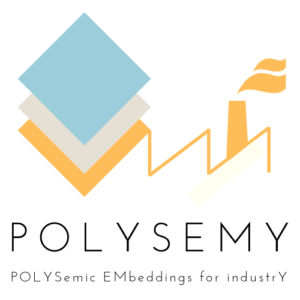
PolysEmY
Project: Polysemic Embeddings for Industry
Date: 01/2020 - 07/2021
Funding: RFI AltanStic 2020
Call:
Partners: SNCF (France)Author(s): Nathalie Camelin, Nicolas Dugué, Jane Wottawa, Gaëtan Caillaut
URL: https://lium.univ-lemans.fr/polysemy
The lexical resources of SNCF's technical documentation testify to the richness and specificities of the business vocabulary used within companies such as SNCF. This vocabulary is sometimes uncommon in corpuses, but according to experts, it is of major importance for the characterization of documents. ► Read more

C3LS
Project: Clustering and Classification on a Corpus in Specialty Language
Date: 11/2017 - 10/2019
Funding: Autres
Call: SNCF
Partners: SNCF (France)Author(s): Nathalie Camelin, Nicolas Dugué
URL: https://lium.univ-lemans.fr/c3ls
The SNCF group is currently undergoing a digital transformation and is increasingly turning to technologies that could use Natural Language Processing (NLP). Business documentation is currently undergoing a major transformation, with businesses that are digitising themselves, becoming more mobile and with new ways of consuming information. Various internal projects have helped to initiate a transition to digital, to find the right information at the right time. Beyond the digitisation of documents, the question arises of new intelligent systems for access to content, interpretation and data entry. The aim of the project is to identify, design and evaluate solutions that can enrich current digital documentation initiatives. The fields of application are writing assistance, information retrieval and navigation in text content. ► Read more

ON-TRAC
Project: Outils Neuronaux End-to-End pour la TRAduction des Communications
Date: 01/2019 - 03/2023
Funding: ANR
Call: Generic
Partners: LIA (Avignon) (France), LIG (Grenoble) (France), Airbus (France)Author(s): Fethi Bougares, Antoine Laurent, Anthony Larcher, Loïc Barrault
URL: https://lium.univ-lemans.fr/en/on-trac/
The ON-TRAC project proposes to radically change the architectures currently used in speech translation. It is based on end-to-end neural models for machine translation and is particularly aimed at lightweight and portable speech translation applications. ► Read more
DEEP-PRIVACY
Project: DEEP-PRIVACY
Date: 01/2019 - 12/2022
Funding: ANR
Call: generic
Partners: Multispeech (France), LIA (France), Magnet (France)Author(s): Anthony Larcher, Antoine Laurent, Marie Tahon, Pierre Champion
URL: https://lium.univ-lemans.fr/en/deep-privacy/
DEEP-PRIVACY proposes a new paradigm based on a distributed, personalized, and privacy-preserving approach for speech processing, with a focus on machine learning algorithms for speech recognition. To this end, we propose to rely on a hybrid approach: the device of each user does not share its raw speech data and runs some private computations locally, while some cross-user computations are done by communicating through a server (or a peer-to-peer network).
► Read more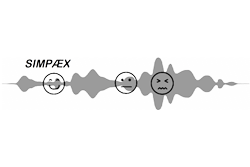
SIMPÆX
Project: SIMPÆX
Date: 02/2018 - 09/2020
Funding: RFI AltanStic 2020
Call: Amorçage, Défis scientifique 2017
Author(s): Marie Tahon
URL: https://lium.univ-lemans.fr/en/simpaex/
The SIMPÆX project aims at the automatic segmentation and identification of expressive styles and speakers in a speech corpus. Indeed the extraction of features concerning the speaker, his emotional state and the social context, offers very relevant clues for various applications such as audio indexing, automatic speech recognition, speech synthesis or human-machine interactions. ► Read more

Néo
Project: Néo
Date: 02/2018 - 01/2020
Funding: RFI AltanStic 2020
Call: Amorçage, Défis scientifique 2017
Partners: Laboratoire ERIC (France), CRTT (France)Author(s): Nicolas Dugué, Nathalie Camelin
URL: https://lium.univ-lemans.fr/en/neo/
Neo is an interdisciplinary digital humanities research project aiming at the semi-automatic detection and analysis of contemporary neology. It results from the convergence of new language practices of the modern web (creation of new words or emergence of new senses) and recent advances in natural language processing, notably via lexicographic methods. This project combines the text mining skills of computer scientists with the experience of studying the neologisms of researchers in applied linguistics. ► Read more

News.bridge
Project: News.bridge
Date: 01/2018 - 06/2019
Funding: Google
Call: Digital News Innovation Funding
Partners: Deutsche Welle, Latvian News Agency, PriberamAuthor(s): Sahar Ghannay, Natalia Tomashenko, Yannick Estève
URL: https://lium.univ-lemans.fr/en/news-bridge/
The NEWS-BRIDGE project will build a commercially exploitable integrated tool with a complete workflow using language technologies to facilitate and enhance multilingual news production. This tool provides for a full broadcast news translation system, rendering existing audio, video and text news content in any of the languages supported by the various external tools for transcription, translation, voice synthesis and summarization in a variety of forms and automation applications. It combines different technologies, including speech-to-text, machine translation, text-to-speech and automated summarization. It allows for customization towards the clients, offering the user the option to get the audio of online video content into their language of choice, either as a voice-over or as subtitles by a simple mouseclick. ► Read more

ALLIES
Project: Autonomous Lifelong Learning IntelligEnt Systems
Date: 12/2017 - 03/2022
Funding: EU H2020
Call: chist-era
Partners: IDIAP (Switzerland), UPC (Span), LNE (France)Author(s): Anthony Larcher, Loïc Barrault, Fethi Bougares, Sylvain Meignier, Yevhenii Prokopalo, Meysam Shamsi
URL: https://projets-lium.univ-lemans.fr/allies
The goal of the ALLIES project is to encourage and demonstrate the development of autonomous systems, able to sustain performance across time according to a given learning scenario. A learning scenario defines the importance given to the performance on “past” and “present” data in the optimization (or evaluation) process. By setting the learning scenario, a human supervisor (HS) allows or forbids the system to forget. In ALLIES, an autonomous system is fully unsupervised, incrementally adapting its models but also their structure to learn or forget events according to the given learning scenario and data that it automatically collects across time. ► Read more

RAPACE
Project: Deep neural networks for oral and written language processing
Date: 10/2017 - 09/2020
Funding: RFI AltanStic 2020
Call: Défis scientifiques 2016
Partners: LINA (France)Author(s): Antoine Caubrière, Antoine Laurent, Yannick Estève
URL: https://lium.univ-lemans.fr/en/rapace/
The RAPACE project aims to bring to the field of automatic processing of oral and written language the latest advances resulting from the field of automatic learning and concerning deep neural networks. ► Read more

Antract
Project: Transdisciplinary Analysis of French Newsreels (1945-1969)
Date: 10/2017 - 03/2022
Funding: ANR
Call: Generic
Partners: INA (France), EURECOM (France), Voxolab (France), CHS (France)Author(s): Simon Petitrenaud, Antoine Laurent, Sylvain Meignier, Pierre-Alexandre Broux
URL: https://lium.univ-lemans.fr/en/antract/
The general objective of the ANTRACT project is the analysis of the images and sounds produced weekly in the framework of an independent company created in 1945, les Actualités françaises (French News), over twenty five years. This major cinematographic vector, already partially worked, has never been the subject of a systematic analysis. ► Read more
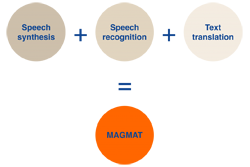
MAGMAT
Project: MAGMAT
Date: 10/2016 - 10/2019
Funding: DGA/DGF
Call: Rapid
Partners: Airbus D&S (France), Voxygen (France)Author(s): Loïc Barrault, Walid Aransa
URL: https://lium.univ-lemans.fr/en/magmat/
Le projet MAGMAT vise à définir et mettre en œuvre une méthodologie agile et incrémentale de développement en temps contraint d’un système de traduction le la parole vers la parole. Sur le plan du développement de langues, deux objectifs principaux sont à considérer. Le premier objectif est de mutualiser drastiquement les développements de la synthèse, de la transcription et de la traduction avec une mise commun les ressources linguistiques. Le second objectif est de définir une méthodologie rendant le processus de développement de langue adapté au contexte visé. ► Read more

PASTEL
Project: PASTEL
Date: 10/2016 - 04/2021
Funding: ANR
Call: Interactions, Robotique, Contenus / Automatique, signal 2016
Partners: Orange Lab (France), cren (France), LS2N (France)Author(s): Christophe Choquet, Antoine Laurent, Vincent Bettenfeld, Nathalie Camelin, Christophe Després, Madeth May, Salima Mdhaffar, Lahcen Oubahssi, Claudine Piau-Toffolon, Asmaa Darouich, Rémi Venant
URL: https://projets-lium.univ-lemans.fr/pastel
PASTEL is a research project that aims to explore the potential of real time and automatic transcriptions for the instrumentation of mixed educational situations where the modalities of the interactions can be face-to-face or online, synchronous or asynchronous. The speech recognition technology approaches a maturity level that allows new opportunities of instrumentation in pedagogical practices and their new uses. ► Read more

Blackcompass
Project: Blackcompass
Date: 04/2016 - 04/2018
Funding: Région Pays de la Loire
Call: Fonds Pays de la Loire Territoires d'Innovation
Partners: Dictanova (France), Ville de Nantes (France)Author(s): Sylvain Meignier, Antoine Laurent
URL: https://lium.univ-lemans.fr/en/blackcompass/
The project aims to develop a software solution to valorize phone exchange content between consumers and brands by analyzing this content. ► Read more
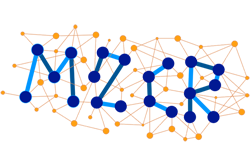
M2CR
Project: Multilingual Multimodal Continuous Representation for Human Language Understanding
Date: 06/2015 - 06/2019
Funding: Autres
Call: Chistera
Partners: MILA (Canada), CVC (Espagne)Author(s): Loïc Barrault, Fethi Bougares, Nathalie Camelin, Yannick Estève, Mercedes García Martínez, Sahar Ghannay, Adrien Bardet, Ozan Caglayan
URL: http://m2cr.univ-lemans.fr/
Communication is one of the necessary condition to develop intelligence in living beings. Humans use several modalities to exchange information: speech, written text, both in many languages, gestures, images, and many more. There is evidence that human learning is more effective when several modalities are used. There is a large body of research to make computers process these modalities, and ultimately, understand human language. These modalities have been, however, generally addressed independently or at most in pairs. However, merging information from multiple modalities is best done at the highest levels of abstraction, which deep learning models are trained to capture. ► Read more

JOKER
Project: JOKe and Empathy of a Robot/ECA: Towards social and affective relations with a robot
Date: 01/2014 - 07/2017
Funding: EU H2020
Call: CHIST-ERA 2012
Partners: LIMSI (coordinateur) (France), UCD (Irlande), UMONS (Belgique), KOC University (Turquie)Author(s): Yannick Estève, Nathalie Camelin, Simon Petitrenaud, Sylvain Meignier, Daniel Luzzati
URL: https://lium.univ-lemans.fr/en/joker/
This project will build and develop JOKER, a generic intelligent user interface providing a multimodal dialogue system with social communication skills including humor, empathy, compassion, charm, and other informal socially-oriented behavior. ► Read more
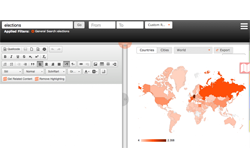
EUMSSI
Project: Event Understanding through Multimodal Social
Date: 11/2013 - 10/2016
Funding: EU FP7
Call: ICT-2013.4.1 Content analytics and language technologies
Partners: UPF (Spain), L3S (Germany), VSN (Spain), GFaI (Germany), IDIAP (Switzerland)Author(s): Yannick Estève, Vincent Jousse, Sylvain Meignier, Paul Deléglise, Nathalie Camelin
URL: https://www.eumssi.eu/
L’objectif principal de EUMSSI est de développer des technologies d’identification et d’agrégation d’informations non structurées provenant de sources de nature très différente (vidéo, image, audio, texte) et de différentes langues (anglais, allemand, espagnol et français). Je suis responsable de l’analyse en locuteur et nous développons conjointement avec l’IDAP un système d’identification multimodale des personnes. ► Read more

VERA
Project: AdVanced ERror Analysis for speech recognition
Date: 01/2013 - 01/2016
Funding: ANR
Call: Blanc
Partners: LNE (France), LPP (France), LIMSI (France)Author(s): Nathalie Camelin, Daniel Luzzati, Paul Deléglise, Sylvain Meignier, Yannick Estève
URL: https://lium.univ-lemans.fr/en/vera/
The VERA project aims at developing tools for diagnostic, localization, and measurements of automatic transcription errors. This project is based on a consortium of first-rate academic actors in this field. The objective is to study the errors in detail (at the perceptive, acoustico-phonetics, lexical, and syntactic levels) in order to yield a precise diagnosis of possible lacks of the current classical models on certain classes of linguistic phenomena.
► Read more
 Français
Français









